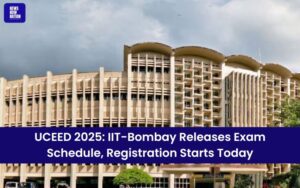
Several private educational institutions welcomed the Supreme Court’s decision upholding 10 per cent EWS quota, while few others were of the opinion that it will take time to change the guidelines on reservation.
“In a country like India, reservation seems to be a distant dream in private unaided institutions. We have seen that most of the unaided private schools still do not give 25 per cent to the EWS section.
It will take time to change the educational guidelines regarding reservation in these institutions. The Supreme Court has also clarified multiple doubts regarding the reservation policy,” IILM University Gurugram dean Asha Verma said.
The Supreme Court on Monday upheld by a 3-2 majority the 10 per cent quota for the Economically Weaker Sections (EWS) in educational institutions and government jobs, saying it was not discriminatory and did not violate the basic structure of the Constitution.
The apex court reasoned that reservation as a concept cannot be ruled out in private educational institutions. “Unaided private institutions, including those imparting professional education, cannot be seen as standing out of the national mainstream,” Justice Bhat observed.
Dr Yajulu Medury, vice chancellor of Mahindra University in Hyderabad, said the Supreme Court’s decision to uphold the 10 per cent reservation will help ensure quality education to students from economically weaker sections and help secure their future. “The decision will help aid and boost the overall progress and development by fostering quality education across a cross section of the society,” he said.
According to Dr Pritam Baruah, dean at Gurugram’s BML Munjal University, the Supreme Court’s decision raises two significant questions–whether economic status generally is a good basis for reservation and whether we can rationally discriminate between the poor for the purpose of reservation.
“The court is unanimous about the first issue. The Constitution does not prohibit economic criteria for reservation. But independently of the court, questions can be put to the government as to why only economic criteria should suffice.
Libertarian views argue that if people are poor despite equal opportunity, they must bear responsibility for that even if the state may provide welfare support for them. Reservation is not a welfare measure. It is a matter of rights and historical discrimination,” he said.
Private educational institutions, education consultants and lawyers are divided on the possible impact of the Supreme Court’s decision on Monday to uphold a Constitutional amendment to mandate 10% reservation for economically weaker sections (EWS).
Principals, directors of university welcome EWS verdict
Gujarat’s Marwadi University provost Sandeep Sacheti, said the Supreme Court’s judgment is a welcome step. “It is so because over the years it has been observed that many well-performing students do not reach the portals of good institutions due to financial limitations.
Overall, it is the right step in helping economically underprivileged but deserving students to fulfill their dreams. The best thing is that it does not belong to any specific class, region and religion. Indeed, it is a positive move towards ensuring social justice,” he said.
Sunil George, principal at IFIM Law School in Bengaluru said the judgement is in line with Article 14 of the Constitution which recognises the concept of “intelligible differentia”.
“The logic behind providing reservation is to remove any kind of inability that exists in society, including inability on account of one’s economic conditions. This decision would also make the Right to Education as envisaged in the Constitution more meaningful,” he said.
VJ Praneshwaran, director of School of Legal Studies at CMR University in Karnataka, said income and economic status as the determinant of reservation or classification has already been provided under the Right of Children to Free and Compulsory Education Act, 2009.
There has been much contention and deliberation about these issues wherein many have observed that the same is not without its own share of drawbacks and demerits.
However, it is also undeniable that the move has helped in alleviating the position of weaker sections by empowering the poorest of the poor, and will indeed go a long way in reducing the social evils of unemployment and poverty.
“So far, reservations in private educational institutions have not been enforced by law. However, all of us must now wait to see how this particular system will be implemented by the government,” he said.
Dr YSR Murthy, founding vice chancellor of RV University said affirmative action is certainly needed to ensure that persons belonging to economically weaker sections enjoy their right to education.
“The Preamble of the Constitution asserts social and economic justice and we have a lot of ground to cover in this regard. I am happy that the Supreme Court took the right decision in upholding the 104th Constitutional amendment.
We will implement all relevant government directions and the law of the land in this regard,” he said.






